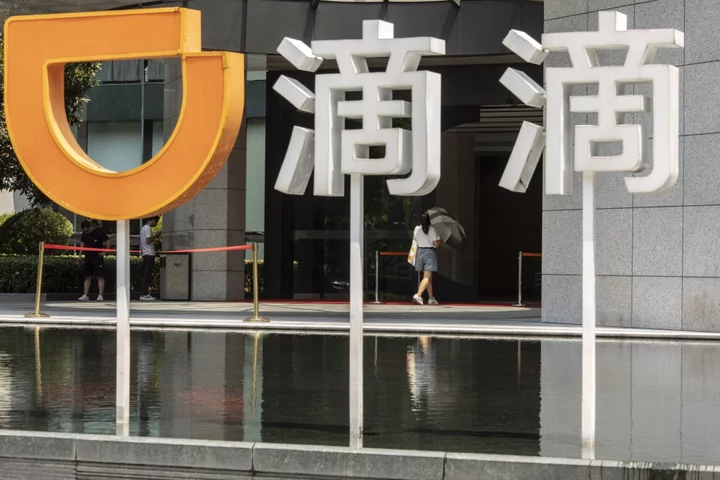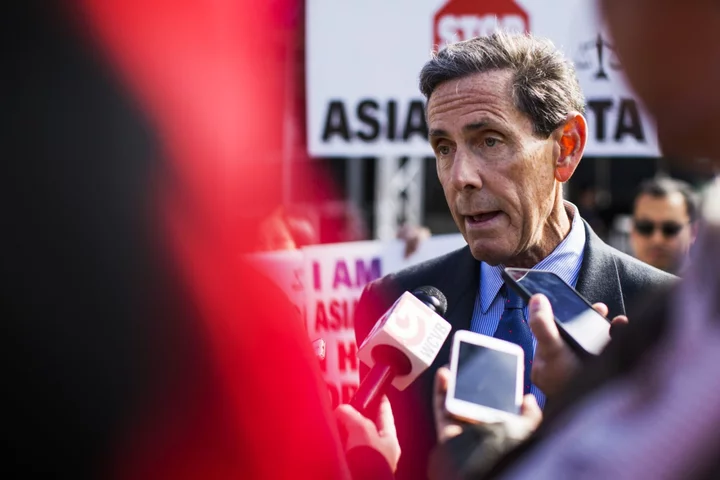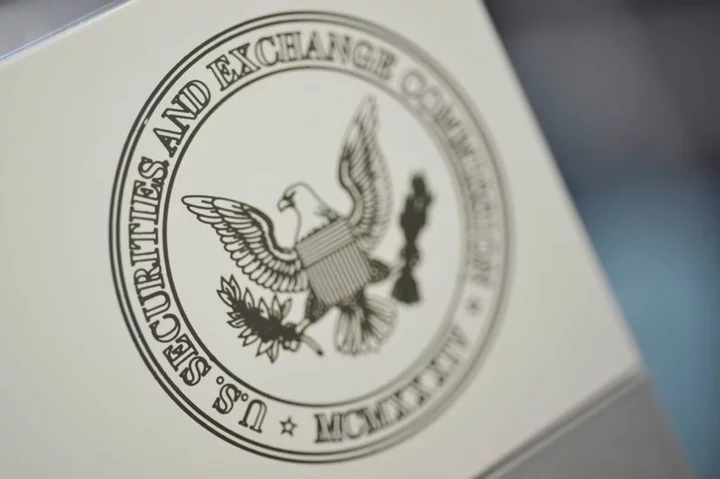China’s biggest ride-hailing company, Didi Global Inc., aims to list shares on the Hong Kong stock exchange next year, plotting a comeback from an ill-fated initial public offering in New York in 2021, according to people familiar with the matter.
Didi has improved its relationship with Chinese regulators after a year-long probe that ended with an 8 billion yuan ($1.1 billion) fine last year, in part by keeping its dominance in check, said the people, asking not to be named because the discussions are private. Didi’s market share in China has declined from about 90% to roughly 70%. Chinese authorities, which forced Didi to delist last year after its debut on the New York Stock Exchange, would have to sign off on any new listing.
The plan could mean a long-awaited payoff for investors and employees, who watched the startup’s shares nose-dive from a valuation of $80 billion when Chinese regulators opened a probe into the company just days after its initial listing. The stock, which is now only traded over-the-counter, last exchanged hands at $3.36, valuing the firm at about $16 billion.
Key backers such as SoftBank Group Corp. may be able recoup some of their losses with a new public listing. SoftBank is estimated to have invested about $11 billion in Didi and now holds a stake of 20%, worth about $3.2 billion.
A Didi representative didn’t respond to an email seeking comment. SoftBank declined to comment.
Didi recently informed current workers that they can sell their shares — under the employee stock ownership program — back to the company, a step that is viewed as a part of the preparation to list the firm in Hong Kong, the people said. Some Didi employees sold stock options during a brief window in early 2022, after a delay in the 180-day lockup period following the US listing, according to several former employees.
Giving Didi the green light for a listing would help Xi Jinping’s administration signal support for the private sector after years of crackdowns rattled the confidence of investors and entrepreneurs. Beijing now needs the support of private enterprise as the country’s economy struggles with a real estate downturn. Many companies have seen growing support from the government, particularly in strategic sectors like technology.
In the months after Beijing’s probe into Didi, the company, led by Chief Executive Officer Cheng Wei and President Jean Liu, sought to turn the business around by streamlining its focus and executing a series of layoffs.
Inside Didi’s $60 Billion Crash That Changed China Tech Forever
Didi cut back on its international expansion, reducing its operations in South Africa, Kazakhstan, and Russia while scrapping its launch in the UK. It turned its focus to Brazil and Latin America where they were more successful due to a stronger localization strategy, helping penetrate the market.
Cost cutting efforts have paid off, allowing the startup to significantly narrow its losses this year. Total revenue rose 53% to 48.8 billion yuan in the June quarter, compared to the same period in 2022. Didi’s core China business benefited from growing domestic travel demand, despite a weaker-than-expected post-pandemic recovery in Chinese consumer sentiment.
Didi still needs to tread cautiously for its listing plans to succeed as the Chinese government is expected to keep close tabs on the country’s ride-hailing industry, scrutinizing their data security and the level of competition. China reportedly plans to launch a government-backed app to integrate a variety of services including ride-hailing, a sign of more state involvement.
Chinese transport regulators summoned major ride-hailing platform companies including Didi earlier this year, calling for better service quality and the elimination of unfair competition to create a favorable market environment.
Some companies attempting a Hong Kong IPO have seen their plans drag on for years without success. Dalian Wanda Group Co. earlier failed to meet a deadline to list shares of its management unit in Hong Kong for a third time and recently told investors the IPO will likely take place next year.
For Didi, most of its main apps returned to the country’s biggest mobile stores as of January, allowing the ride-hailing giant to resume growth after more than a year in regulatory limbo. Didi’s valuation briefly hit a high of $23 billion shortly after the apps were revived.
Bloomberg Intelligence analyst Sharnie Wong forecasts a rebound in Hong Kong’s initial public offerings next year, after facing a lag due to China’s sputtering economic recovery. “Hong Kong’s reputation for major IPOs could soon stir anew, with several developments hinting at long-awaited rejuvenation,” she wrote in a note in October.
“Tech’s restructuring is evident in Alibaba’s planned spinoffs. Overseas listing approvals from China’s regulator and greater efficiency from Hong Kong Exchanges’ new digital IPO platform all point to a shift in the wind,” she said.
--With assistance from Pei Li and Manuel Baigorri.
Author: Dong Cao, Sarah Zheng and Min Jeong Lee









